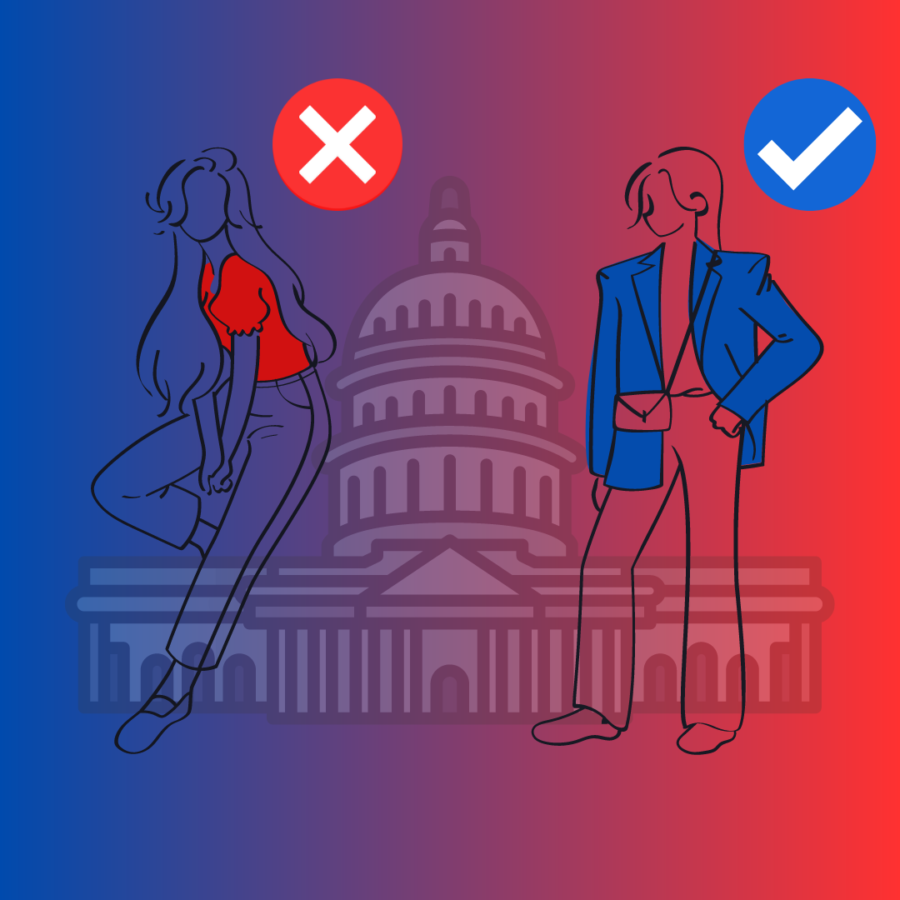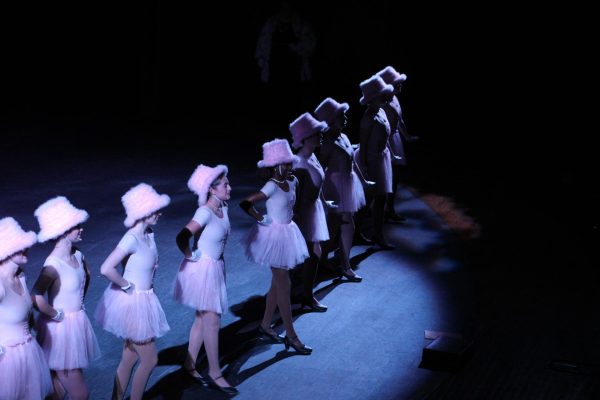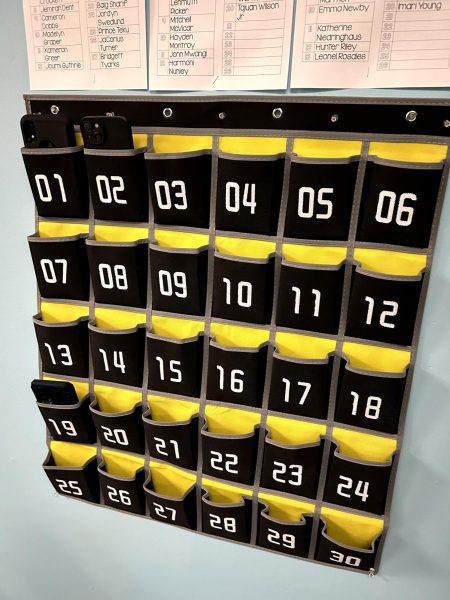Sleeves Required: Missouri Congress Tightens Dress Code for Women
Congress passes new rules that forbid its congresswomen from wearing clothing with short sleeves.
Just recently, the Missouri congress passed legislation requiring women in congress to wear jackets, blazers, cardigans, or knit blazers over their clothing. In other words, the purpose of the change in dress code is to prohibit women from having their arms showing while on the house floor. This legislation has sparked heated debate and has made national news.
Republican Rep. Ann Kelley proposed the legislation, saying she wants to “clean up some of the language… by mirroring the language in the gentleman’s dress code,” since men are required to wear coats.
Government teacher Katherine Korte said when she first heard of the legislation she was confused.
“I didn’t think that this was a problem, and then my second reaction was why do we still feel the need to regulate women’s clothing so much?”
Korte said that she felt the legislation was condescending towards women.
“To explicitly state what [professional attire] means… in detail, I felt like it was a little bit demeaning in that women somehow wouldn’t understand what professional attire meant in the legislature,” she said.
Korte said that while she did think there are “more important things for our legislator to focus on, I do recognize they only spent, according to their chamber records, about five minutes on the issue… it kind of seems like a wasted exercise.”
Korte empathized with Rep. Aune’s argument, however, “to have that kind of gaze in an unprofessional questioning manner just seems inappropriate for this time that we’re in. It seems like something we should be a little bit more beyond.”
Korte said she felt that the “clothing options for men and women are different societal based expectations, so I think [Rep. Kelley’s] argument… is a bit empty.”
Korte said that to her, the solution would be to “leave [the rules] at just ‘professionally’ and leave people at their own devices to define what professionalism means, and to kind of focus on legislation and not what people are wearing.”
Senior Keira Silva spoke on the legislation, saying she thought it was very sexist.
“All the women in office have been dressing appropriately for years, so I was kinda confused why this was even brought up,” Silva said.
Silva thought that the focus was embarrassing for the state, saying “It was extremely unprofessional for them to be hashing out a bill such as this when there is no argument to be had about this really… there’s a lot of bigger and better things to be handled instead.”
Sophomore Claire Herter also spoke on the legislation, saying that it’s “actively oppressing women and depriving them of basic freedom,” and that it’s demeaning as it’s “objectifying women who are only trying to exist in their formal workplaces.”
Herter said that if the school hypothetically were to adopt a similar policy she would be very upset, as “everyone deserves to express themselves at school,” and that such restrict dress codes for schools “also tells very young and impressionable girls that they should always be conscious of if they are being ‘modest enough’ or not.”
Herter also said, however, that she understood many of the school’s current dress code rules.
“I don’t think kids should be allowed to wear clothes encouraging gun violence, dramatic sexualization, or anything like that… I do also think that policing what children wear can very quickly turn negative,” she said. “Overall, I think our dress code is less intense than a lot of other places, but there are still a few rules that could be relaxed.”
Silva said she felt that if the school hypothetically were to adopt a similar policy, it “just wouldn’t even be able to be enforced.” She said that while “perhaps it’s reasonable to have a dress code for [Missouri Congress]… at the same time their discussions tend to be rather informal.”
Silva said she does not think that the school’s current dress code is too restrictive “only because it’s not being enforced,” but that it occasionally can be. “It’s all very situational,” she said. “Really, it just depends on the woman’s body type and whom it is that’s dress coding them.”
In regards to what Representatives Kelley and Aune said, Silva said that men wearing suits is simply “just men’s professional attire. They don’t make men’s short sleeve suit jackets, unfortunately.”
In response to Rep. Ann Kelley’s argument, Herter said “I don’t think men should be required to wear coats either.” She continued, saying, “The rule is objectifying… and puts women in a place where they will almost definitely get sexualized by their male coworkers.”
Herter also said she felt that the situation was embarrassing and a poor look for the state of Missouri.
While the topic of dress codes being debated is not an unusual one, the story of Missouri congress requiring women to wear clothing to cover up their arms has made national headlines within legacy media, and was the topic on many cable news shows. The legislation passed 105-51 within Missouri’s congress, and continues to add to the debate of dress codes throughout the nation.
Your donation will support the student journalists of Pattonville High School. Your contribution will allow us to purchase new equipment and cover our annual website hosting costs.






